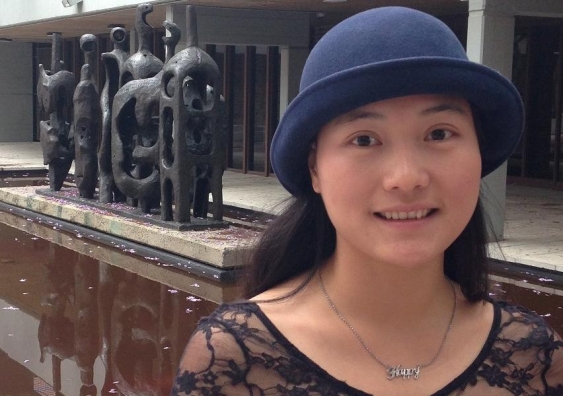Always look on the bright side of ageing
Li Zhao, a PhD student visiting from China for the Go8-C9 research forum, believes high-tech gadgetry can solve many of the problems of ageing populations.
Li Zhao, a PhD student visiting from China for the Go8-C9 research forum, believes high-tech gadgetry can solve many of the problems of ageing populations.

Researchers in China tend to be pessimistic about population ageing, particularly its economic consequences, says Li Zhao, a PhD student from the University of Science and Technology in eastern China.
But Li does not share the gloomy outlook.
“I think there is a lot to be optimistic about,” the 29-year-old told a group of PhD students from leading universities in Australia and China, at a higher degree research (HDR) forum at UNSW.
While an extraordinary proportion of the global population will be 60 and or older in the coming decades, the same people will also be highly familiar with high-tech gadgetry, Li says. Technology from smart phones to DIY blood pressure monitors is already central to contemporary life and it’s only set to be more so. It is advanced technology, Li says, that can provide support for the elderly as well as economic opportunities for those who develop it.
Li is in Sydney to take part in the annual Go8-C9 HDR Forum, which is this year being hosted by UNSW. The forum brings together outstanding PhD students from leading universities in Australia and China, and this year’s theme is “global challenges of ageing”.
Students from both countries have shared their ideas on topics ranging from stroke prevention to use of text messages across age groups to designing bathroom products that can help older people maintain their independence.
Li pointed to a GPS watch developed in her home town of Hefei, in Anhui Province, as one example of the sorts of technologies that can help older people and promote economic growth. The $80 watch has a GPS-tracker, an SOS button that can notify family or emergency services of a fall, a pedometer to encourage exercise and you can apparently make a phone call on it.
Other high-tech creations include home help robots that are being developed in Japan, a “dialogue table” that can talk back, designed by students in the UK, and a DIY health diagnostics system, designed in Italy, that can measure a range of systems, from kidney function to blood pressure.
“I have looked at technology designed for the elderly in more than 10 countries,” Li said. She would like to see much more investment in technology aimed at the elderly. “It will also benefit the economy,” she said.
Professor Fang Wu from Shanghai Jiao Tong University and UNSW Scientia Professor John Piggott, director of both the ARC Centre of Excellent in Population Ageing Research and the Australian Institute for Population Ageing Research, gave the forum’s keynote speeches. Professor Wu spoke about potential new drugs for neurodegenerative diseases while Professor Piggott discussed ageing trends and social security policies across Asia.
“It’s vital that younger researchers take up the challenge of understanding better the causes and consequences of population ageing, both here and in China. And for that matter, around the world – ageing is global,” Professor Piggott said.
Li agrees. “We are all going to face old age. No doubt. Our parents are experiencing it now and even our children will be old some day, too. So let’s look into it. Let’s jump out of the negative thinking. Let’s look at the opportunities. There are a lot of things for us to do,” she said.
UNSW Professor Laura Poole-Warren, Pro Vice-Chancellor Research Training, is the chair of the Go8-C9 forum’s Steering Committee.
“This type of conference is without a doubt a terrific way of developing global networks as well as contributing to solving interdisciplinary research challenges such as population ageing,” Professor Poole-Warren said.
The delegates have enjoyed workshops on creativity and innovation, and forging China-Australia collaborations. Networking was an essential element of the program with social events including a stroll along the Bondi to Bronte path, dinner at the Bronte Surf Lifesaving Club and a ferry trip to Taronga with a private tour and dinner.
Media contacts Lissa Christopher, UNSW Media Office, 9385 1370; Christina Bacchiella, UNSW Graduate Research School, 9385 4032 or 0401 650 658.